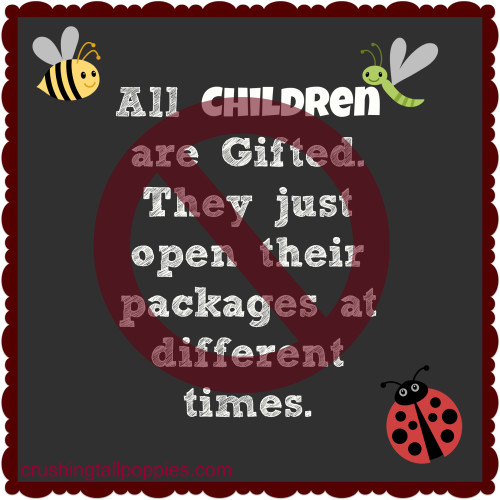I need to start this post with a quick introduction to the
Australian curriculum general capabilities for my readers who aren't based in Australia or are otherwise unfamiliar with - what many Australian teachers call them - the gen caps. Please think of them as one of the ways our curriculum describes the knowledge, skills, behaviours and dispositions that will enable our young people to "live and work successfully in the twenty-first century" (ACARA, 2015). There are seven general capabilities:
- Literacy
- Numeracy
- Information and communication technology (ICT) capability
- Creative and critical thinking
- Personal and social capability
- Ethical understanding.
- Intercultural understanding
The general capabilities are, perhaps, some of the more ignored parts of the AC. Whilst the curriculum documents do, in fact, provide learning continuum and explicit cross-curricular links some of the gen caps tend to be left in the too hard basket, or ignored all together. Clearly these options aren't acceptable and regardless of what we think of the AC, it is our mandated curriculum so we have a responsibility to teach it ALL.
Wow, that started to get a little preachie-preachie didn't it? Sorry about that! I get a little fired up because it frustrates me when I see teachers choosing to ignore one or more of the gen caps because they, personally, aren't confident or competent with the concepts. Step up people, or step out.
And again! #sorrynotsorry
Back to the actual point of this post...
The first professional development session I attended in the last school holidays was run by
Teacher Technologies and focussed on parts of the
ICT general capability of the Australian Curriculum, specifically the social and ethical protocols and practices.
There were a couple of recurring themes throughout the day. One was the idea that we, as teachers, have a responsibility to model social and ethical behavioural choices for our students. (And not just when using ICT I might add!) This isn't a new idea but it's certainly an important one to consider. Think about the example we set when we - and I'm not saying that I, or you, do or don't do this - download an YouTube clip to use in class. Sure, we can justify it under the 'educational use' umbrella but do our students know that? Do we explicitly explain to them what we're doing? Do our students know that they can't do the same thing? How would they know? And if, after we've downloaded a clip, we store it on our hard drive for next year is it still OK?
Another example are the images that we put in our presentations, or assignment sheets. I don't know about you, but I take great pleasure in finding the perfect image and will openly admit that I don't always do the right thing. And so the example I set is to use whatever image I like regardless of ownership. I am slowly getting better though. Actually, you know how ex-smokers are the worst kind of non-smokers in terms of telling people to not do it? (And with good reason! High five if you're an ex-smoker!) Well, I'm that person in my house now, with creative commons images: I'm pretty sure my husband is going to take away my internet access if I ever again look at something he's done with an arched eyebrow and comment "that doesn't look like a creative commons image to me".
Yesterday one of my own children approached me with a question about referencing a podcast using the Harvard system. After I quit shaking (because I'm an APA girl through and through) I pointed him in the direction of some websites that I've found helpful in attributing my sources recently. And it dawned on me what had just happened. My 14 year old, who listens to
The Naked Scientists podcast like I listened to the Top 40 at his age, was using an idea he'd heard in a podcast to help build his argument in an essay on
parallel universes, black holes, space. He knew he needed to attribute those ideas appropriately. Yay! Somewhere along the line, whether at home or at school, this kiddo got it! He understands intellectual property. I did, of course, wonder whether he'd picked it up from good modelling (ahem!) or if it had beeen explicitly taught, which brings me to the other recurring theme.
Whilst we must model social and ethical protocols and behaviours when using ICT it is just as important that we explicitly teach them. It would be lovely for young people to pick up on why it's not a good idea to click on every *enter now* button through osmosis, but it's not overly likely. As a teacher, I use a range of strategies to keep any personal information I keep (digitally)about my students secure. (And securely destroy the files when appropriate.) This isn't something I can model to my students though, it's the kind of thing that needs to be explicitly taught in developmentally appropriate ways right across the primary and secondary years of schooling. The ICT gen cap learning continuum is very detailed about when and what students need to learn.
I could write about the importance and value of this component of this gen cap all day because it's something that is of increasing importance to everyone. As you can imagine, I was tweeting all day. I'm sharing
Selena Woodward's Storify today. Enjoy. (As you scroll through, you'll notice that we were a bit spoilt for morning tea! I think there were about 10 of us there...)
Standard 2 Know the content and how to teach it
Standard 4 Create and maintain supportive and safe learning environments
Standard 6 Engage in professional learning
Standard 7 Engage professionally with colleagues, parents/carers and the community
ACARA. (2015). General capabilities: introduction. Retrieved from http://www.australiancurriculum.edu.au/generalcapabilities/overview/introduction















